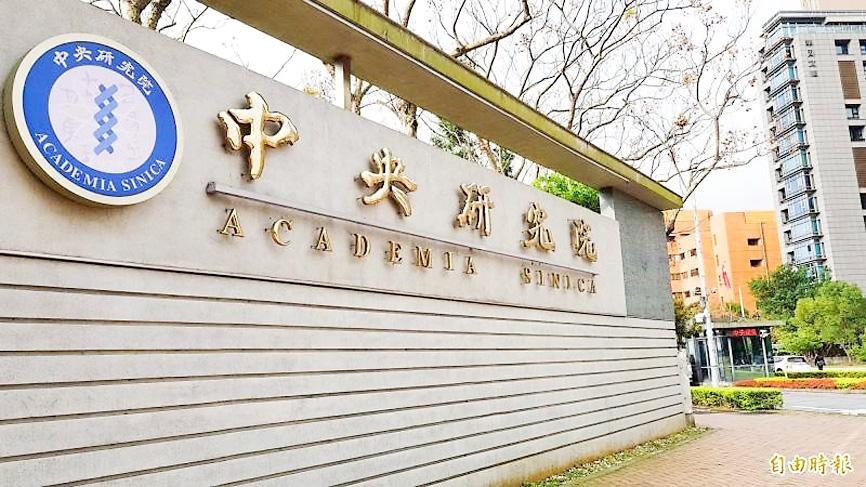The number of typhoons that make landfall in Taiwan in the last quarter of the 21st century is expected to be roughly half the number that landed from 1979 to 2015, due to the effects of climate change, a researcher said.
There are likely to be 44 percent to 54 percent fewer typhoons hitting Taiwan at the end of the century, which would result in 40 to 60 percent less rainfall annually, Academia Sinica researcher Hsu Huang-hsiung (許晃雄) said on Tuesday, adding that the situation would hugely affect the nation’s agriculture and water supply.
Taiwan would also experience increasingly warmer winters and springs, he said.

Photo: Chien Hui-ju, Taipei Times
Hsu said that he and his research team used a high-resolution atmospheric model in their analysis of climate change in East Asia and the northwestern Asia-Pacific.
The team discovered that a weakening of atmospheric circulation during winter would contribute to a reduction in rainfall in winter and spring, he said.
Reduced winter rainfall would affect farmers’ ability to sow rice in the spring, he added.
The team found that there would be a reduction in summer and autumn rainfall above the South China and Philippine seas, caused by increases in the high-pressure systems there, he said.
For northern Taiwan, springtime southwesterly winds are an important annual source of rain, he said.
The conditions that would bring those winds are situated off the southwest coast of Taiwan proper, but in their research, the team found that they would move northward, causing reduced rainfall in northern Taiwan, he said.
The northwestern Pacific Ocean is expected to see the greatest decrease in typhoon activity of all the planet’s oceans, he said.
Typhoons that do occur at latitudes above 20 degrees north latitude would become stronger, and those south of that latitude would become weaker, he said.
Ocean temperatures near Taiwan would increase by about 3°C, and although typhoons hitting Taiwan would bring 4 to 8 percent stronger winds, as well as 30 to 40 percent more rain than current typhoons, a decrease in the number of typhoons would mean an overall decrease in annual rainfall, he said.
The team collected long-term data from various sources, such as climate change research by the Ministry of Science and Technology and Academia Sinica, he said, adding that analysis models were processed using the National Center for High-performance Computing’s Taiwania 1 supercomputer.

The Central Election Commission has amended election and recall regulations to require elected office candidates to provide proof that they have no Chinese citizenship, a Cabinet report said. The commission on Oct. 29 last year revised the Measures for the Permission of Family-based Residence, Long-term Residence and Settlement of People from the Mainland Area in the Taiwan Area (大陸地區人民在台灣地區依親居留長期居留或定居許可辦法), the Executive Yuan said in a report it submitted to the legislature for review. The revision requires Chinese citizens applying for permanent residency to submit notarial documents showing that they have lost their Chinese household record and have renounced — or have never

A magnitude 5.6 earthquake struck off the coast of Yilan County at 12:37pm today, with clear shaking felt across much of northern Taiwan. There were no immediate reports of damage. The epicenter of the quake was 16.9km east-southeast of Yilan County Hall offshore at a depth of 66.8km, Central Weather Administration (CWA) data showed. The maximum intensity registered at a 4 in Yilan County’s Nanao Township (南澳) on Taiwan’s seven-tier scale. Other parts of Yilan, as well as certain areas of Hualien County, Taipei, New Taipei City, Taoyuan, Hsinchu County, Taichung and Miaoli County, recorded intensities of 3. Residents of Yilan County and Taipei received

Taiwan has secured another breakthrough in fruit exports, with jujubes, dragon fruit and lychees approved for shipment to the EU, the Ministry of Agriculture said yesterday. The Animal and Plant Health Inspection Agency on Thursday received formal notification of the approval from the EU, the ministry said, adding that the decision was expected to expand Taiwanese fruit producers’ access to high-end European markets. Taiwan exported 126 tonnes of lychees last year, valued at US$1.48 million, with Japan accounting for 102 tonnes. Other export destinations included New Zealand, Hong Kong, the US and Australia, ministry data showed. Jujube exports totaled 103 tonnes, valued at

BIG SPENDERS: Foreign investors bought the most Taiwan equities since 2005, signaling confidence that an AI boom would continue to benefit chipmakers Taiwan Semiconductor Manufacturing Co’s (TSMC, 台積電) market capitalization swelled to US$2 trillion for the first time following a 4.25 percent rally in its American depositary receipts (ADR) overnight, putting the world’s biggest contract chipmaker sixth on the list of the world’s biggest companies by market capitalization, just behind Amazon.com Inc. The site CompaniesMarketcap.com ranked TSMC ahead of Saudi Aramco and Meta Platforms Inc. The Taiwanese company’s ADRs on Tuesday surged to US$385.75 on the New York Stock Exchange, as strong demand for artificial intelligence (AI) applications led to chip supply constraints and boost revenue growth to record-breaking levels. Each TSMC ADR represents